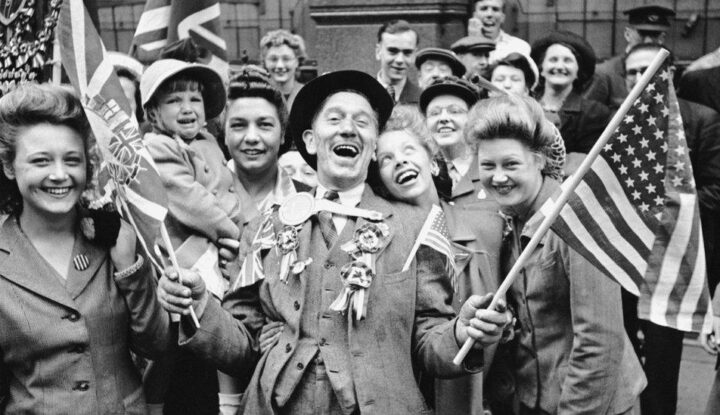Eighty years ago the streets of Britain erupted in celebration because VE Day was a moment of profound relief, collective joy, and renewed hope – hard-earned through immense courage and sacrifice. It marked the end of the devastating war in Europe and the end of the Nazi Reich. But the victory we commemorate today was more than just the defeat of a military foe. It was also held forth as the triumph of the ideals of the open society – freedom, human dignity, democracy, and the rule of law – over the brutal ideology of fascism. That struggle didn’t end in 1945 and it isn’t over now.
The values defended at such cost in 1945 are facing renewed threats across the globe today. Authoritarianism, divisive populism, visceral racism, and many other components of fascism and the closed society are resurgent, challenging the basis of democratic life. Leaders who disdain human rights, undermine judicial independence, attack press freedom, and scapegoat minorities are in power in many states, and have influence everywhere.
This threat is not confined to nations with authoritarian pasts. The enemies of the open society are on the march again not only in countries that lost the Second World War but also in those that stood among the victors. No society can afford complacency because none is inherently immune to the siren song of “strongman” rule or the creep of illiberalism that paved the way for the catastrophes of the mid-20th century.
While 2025 marks the glorious 80th anniversary of VE Day, it also marks a less auspicious centenary. It was in 1925 that the UK recognised Benito Mussolini’s fascist regime in Italy and agreed to its invasion and colonisation of Ethiopia. It was a first act of appeasement that came at a great cost and it reminds us that democratically elected leaders have a patchy track record in facing down the proponents of authoritarianism.
We see this danger today around the world. Some liberal politicians, often fearing electoral disadvantage, are hesitant to robustly challenge populist rhetoric. Instead, they flirt with the very tactics of fear and division they claim to oppose. By conceding ground on crucial issues like migration, civil liberties, human rights, or freedom of expression – often justified as a pragmatic means to ‘keep out the real extremists’ – they risk normalising the authoritarian playbook, not marginalising it.
And what, ultimately, is the point of adopting the strategies of the authoritarians we fear? It doesn’t safeguard our democracy; it merely shifts the entire political landscape onto their preferred terrain, legitimising their approach. If leaders personally committed to the open society feel compelled to mimic illiberal policies to stay in power, we begin to lose the precious values we claim to protect, long before any overt authoritarian takes control. This is pre-emptive surrender, not strategic defence.
The legacy of VE Day demands more. It demands vigilance and action. Defending the open society is a continuous task, requiring commitment from citizens and governments alike. From championing a free and critical press and upholding the independence of our judiciary to actively resisting the scapegoating of migrant and minority communities, every one of us has a role in reinforcing the ethical bedrock of our democracy. Each of us has a moral duty as citizens to resist seductive simplicity of populism, and instead defend the complex, rich diversity of a free and open society
Internationally, the free democracies of today should reinvest in alliances dedicated to protecting democratic norms, hold human rights violators accountable, and refuse to grant legitimacy to authoritarian leaders. Domestically, they should resist the temptation to mirror authoritarian tactics for short-term political gain. Instead, progressive governments should go the other way: proactively strengthen our democratic immune system through measures like unwavering support for universal human rights, enhancing citizenship education, considering necessary regulation for the digital public square, pursuing political reforms that increase accountability, and fostering a culture of critical thinking and mutual respect.
Reflection on any moment in history should not be only a backwards-looking experience. It is an opportunity for the mirror of history to help us see our own times with greater clarity. Eighty years on, VE Day is not just a date for remembrance but a call to recommitment. Only through the principled leadership and decisive action of our political representatives can we make sure that the hard-won victories for the open society endure and we pay our genuine respects to the great generation that won them.
